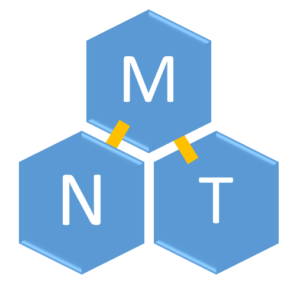Eat this to feel calm- GABA
Neurotransmitter-GABA
One of my favorite things in life is to wake up feeling anxious. Who doesn’t love the smell of cortisol in the morning?
Oh, you don’t relate? Well, let me introduce you to your new friend, GABA! (No, I don’t mean Yo Gaba Gaba.)
GABA controls the rhythm of the brain’s electricity. An even pace of electrical current allows the brain and body to perform their functions at a steady pace. Insufficient GABA results in electricity that is generated and received in bursts rather than in a steady flow. GABA also regulates dopamine and acetylcholine levels and is the primary inhibitory neurotransmitter for the central nervous system, meaning it serves as an “off switch” that allows the mind and body to calm and permits sleep. It has been referred to as the brain’s natural Valium. GABA levels affect personality directly, and an imbalance significantly affects one’s emotional state. Well-balanced GABA produces a state of physical, mental, and spiritual calm, balanced moods, and the ability to deal well with life’s stresses. GABA also allows for the production of endorphins, the body’s feel good chemicals, which are known for producing the Endorphin Effect experienced as the runner’s high and felt after sexual intercourse and other physical activity.
Loss of GABA can cause effects including lowered sex drive, headaches, migraines, palpitations, hypertension, seizures, anxiety, irritability, panic attacks, moods swings, bipolar disorder, short-tempered raging, and various excesses that include an inability to stop an action appropriately such as alcohol or marijuana abuse and binge eating disorder.
GABA is generated by neurons in the temporal lobes, home to the functions of language and memory. Temporal lobes also serve to balance the frontal lobes (personality) and parietal lobes (thought and action). Temporal lobe neurons generate Theta brain waves which travel at 4-8 cps and make us feel drowsy. (1,2)
Balanced levels of GABA are associated with …
A sense of calm, steadiness, stability & Zen; having proper boundaries & understanding others’ boundaries, feeling in control of your life, feeling balanced (1, 81-82) (2)
Deficient levels of GABA are associated with…
Anxiety, feeling overwhelmed, having mood swings, migraines, panic attacks, & feeling shaky. Poor boundaries, not knowing when to stop (eating too much, talking too much, thinking too much, & giving too much), binge eating, alcoholism, marijuana abuse, impulsivity, feeling out of control, feeling on edge, & having trouble sleeping, rage, short temper, manic depression (1,75-77, 81-82) (2, 120-122)
You’re thinking: about every horrible thing you’ve experienced, every embarrassing thing you did ten years ago, and how the world is definitely imploding so might as well have a melt down in the middle of the street right now.
Quick Fix
- brown rice & milk bowl, sweetened with stevia, cinnamon, & nutmeg
- low-fat cottage cheese& mandarin orange segments
- drink plenty of water
WHY: 1. Brown rice is high in glutamine, the amino acid building block for GABA. GABA is the brain’s calming, anti-anxiety neurotransmitter. Brown rice is also high in inositol, a B complex vitamin that boosts GABA & can be as effective as Effexor, a prescription anti-anxiety medication ( , ). Milk has amino acids that boost GABA, dopamine, serotonin, & acetylcholine (1). Cinnamon boosts GABA, has blood sugar stabilizing properties that benefit mood & reduce carb cravings (1) (3, 39), and anti-oxidant & anti-inflammatory properties that improve brain health (3; 38,39,43), (5). Nutmeg boosts serotonin & dopamine. 2. Cottage cheese boosts all 4 neurotransmitters, & contains methionine & tyrosine which, in combination, are great for calming anxiety in stressful situations (1) (4). 3. Dehydration, even mild, can affect mood (6)
Foods to eat regularly
- bran
- brown rice
- corn
- high-fiber breakfast cereals & oatmeal
- whole wheat
- whole meal breads
- beans
- lentils
- peas
- carrots
- beets
- rutabagas
- turnips
- sweet potatoes
- dairy products
- fish
- meats
- poultry
- bananas
- cantaloupe
- figs
- grapefruit
- mangoes
- oranges
- broccoli
- spinach
- kale
- beets
- beans
- lentils
- nuts
- oats
- wheat
- wheat bran
- wheat germ
- halibut
- beef liver
- raisins
- molasses
- veal
- pork
WHY: Complex carbohydrates and root vegetables, like foods 1-14 & 32 are high in glutamine, the amino acid building block for GABA. GABA is the brain’s calming, anti-anxiety neurotransmitter. Foods 15-18 also contain glutamine. (1; 75,86). Foods 19-37 are high in B vitamins that boost GABA production. (1, 86-87). Foods 2,19,20,22,24,25,29,31,34,35, & 38-41 are high in inositol, a B complex vitamin can be as effective as prescription anti-anxiety medication (4).
AVOID
- simple carbs (white flours, refined sugars, refined wheat products like baked goods, crackers, pastas)
- alcohol
WHY: a. simple carbs may calm your brain temporarily, but make your GABA deficiency worse in the long run (1, 85). b. though initially calming, alcohol can cause edginess as it is processed by the body and can disrupt sleep, which resets the brain (6) (1) (2)



Leave a Reply
Want to join the discussion?Feel free to contribute!